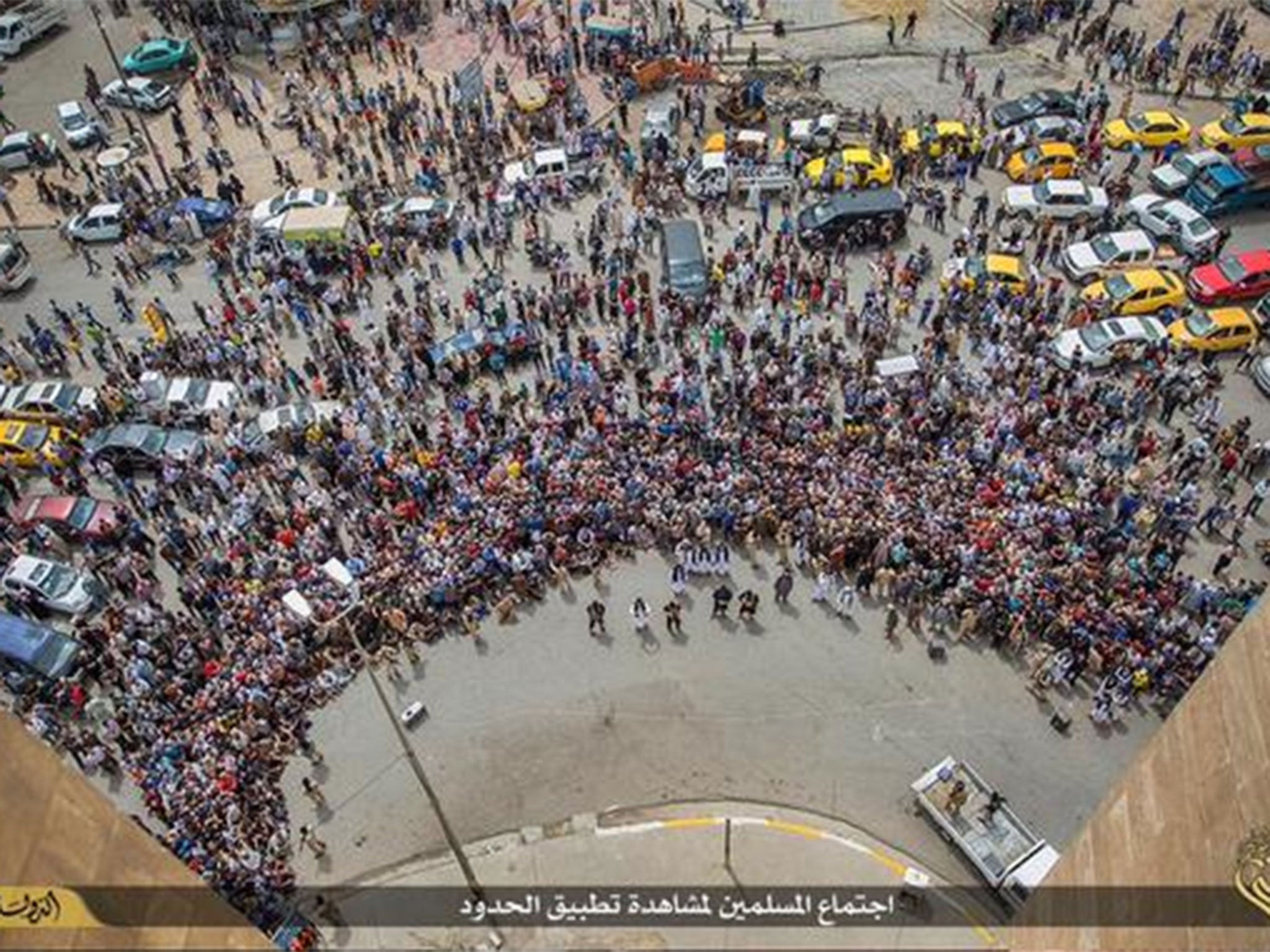Isis has killed at least 25 men in Syria suspected of being gay, group claims
Figures revealed as reports emerged of a teenager in the Syrian city of Deir ez-Zor was thrown to his death

At least 25 people have been murdered in Syria by the so-called Islamic State for being gay, a UK-based monitoring group has told the Independent.
Amid reports of a 15-year-old boy being thrown from the rooftop of a high-rise building in the Syrian city of Deir ez-Zor - seemingly the latest victim of the Islamist group's brutal crackdown - the Syrian Observatory for Human Rights told The Independent that dozens of men had been killed by Isis jihadists.
Six have been stoned to death, three killed from direct shooting to the head and 16 thrown from high-rise buildings. Those that survived the fall, the group added, were then stoned on the streets below by scores of bystanders. Two of those killed were under 18.
It is alleged that the man who raped the 15-year-old, a senior Isis officer called Abu Zaid al-Jazrawi, was spared execution.
Instead, he faced a demotion and was forced to leave Syria and join the fighting fronts in north-western Iraq.
“The horrific execution took place in front of large crowd,” said Sarai al-Din, a local media activist who witnessed the murder, told Syrian news agency ARA.
Speaking to the news agency, civil rights activist Rawd Ahmed, said: “Daesh (another name for Isis) accuses people of being gay only on the basis of some superficial information without any investigation. Although the Islamic law bans homosexuality, the brutal punishment by Daesh has never been witnessed throughout history.”
Footage of terrified men in blindfolds being escorted to the rooftops of high-rise buildings and then being thrown to their death has become commonplace. It has led human rights groups to become increasingly concerned that this extreme violence is inspiring other militias in the war-torn region to attack men they suspect of being gay.
Jessica Stern, the executive director of the International Gay and Lesbian Human Rights Commission, told the United Nations in August 2015 that the so-called Islamic State had established courts in Syria and Iraq that were sentencing men convicted of sodomy.
Mrs Stern told the UN, at the time, that the terrorist organisation had murdered 30 men based on their sexuality but the Syrian Observatory for Human Rights says this includes those in Iraq as well as Syria.
During the same meeting at the UN security council ambassadors heard chilling details of the treatment of gay men who had fled the war-torn region. One, who hid his identity, said: "In my society, being gay means death."
A second man added: “At the executions, hundreds of townspeople, including children, cheered jubilantly as at a wedding. If a victim did not die after being hurled off a building, the townspeople stoned him to death.” Another said the terrorist Isis militants used mobile phones and social media to hunt down those they suspect of being gay.
Mrs Stern stressed that persecution of LGBT people in Iraq and Syria began long before the emergence of Isis, and called for UN action to relocate LGBT persons most in need and to bring the gay community into broader human rights and humanitarian initiatives.
Join our commenting forum
Join thought-provoking conversations, follow other Independent readers and see their replies
Comments
Bookmark popover
Removed from bookmarks